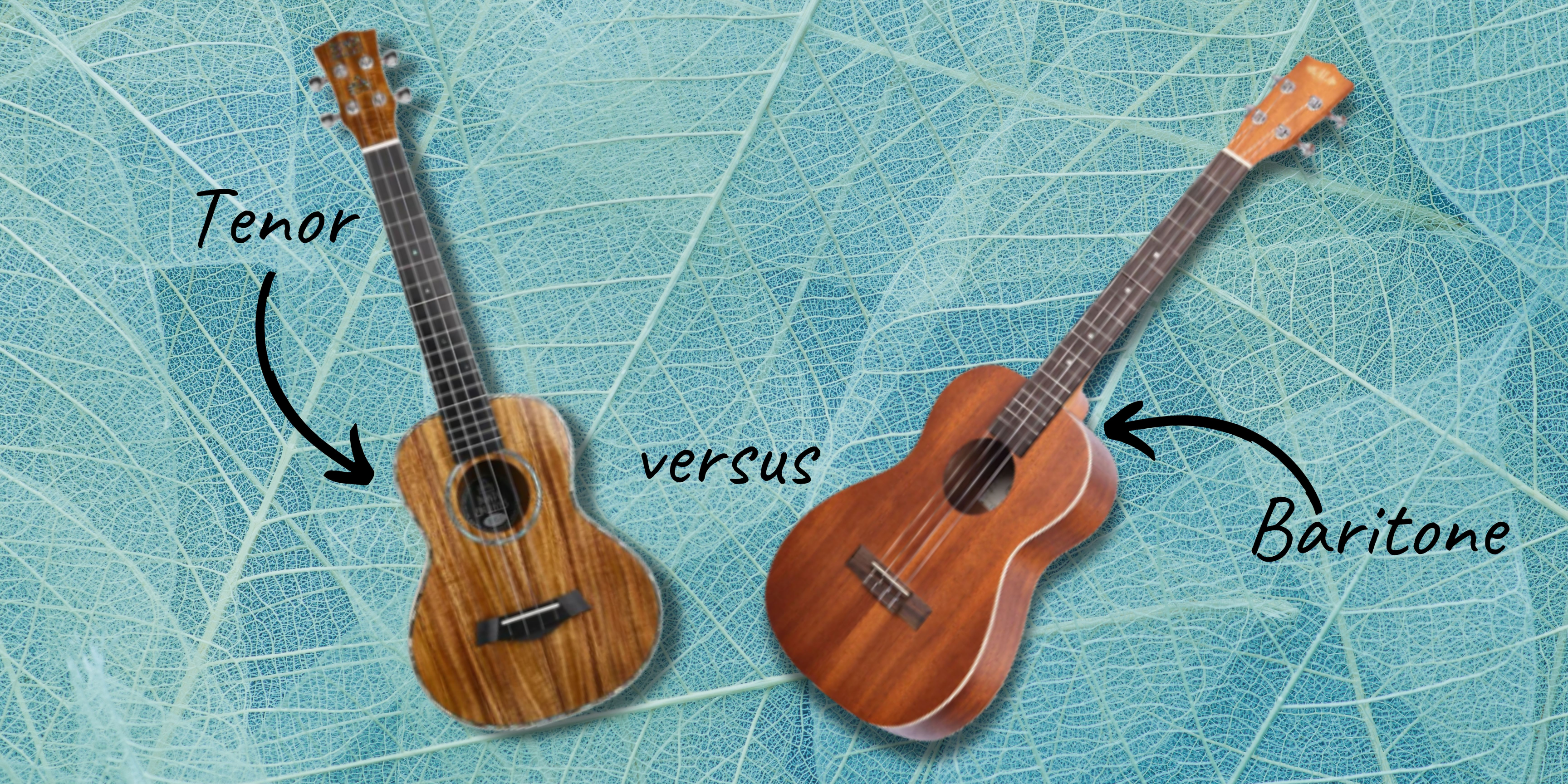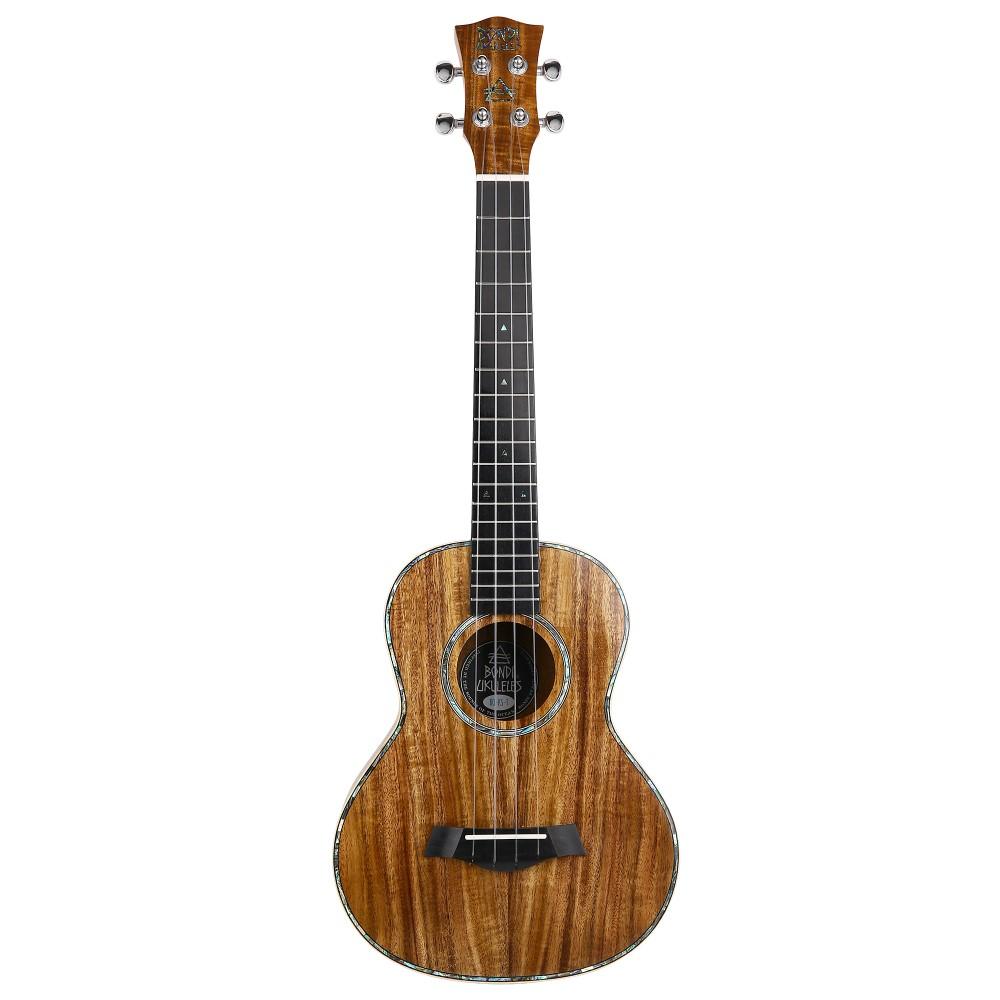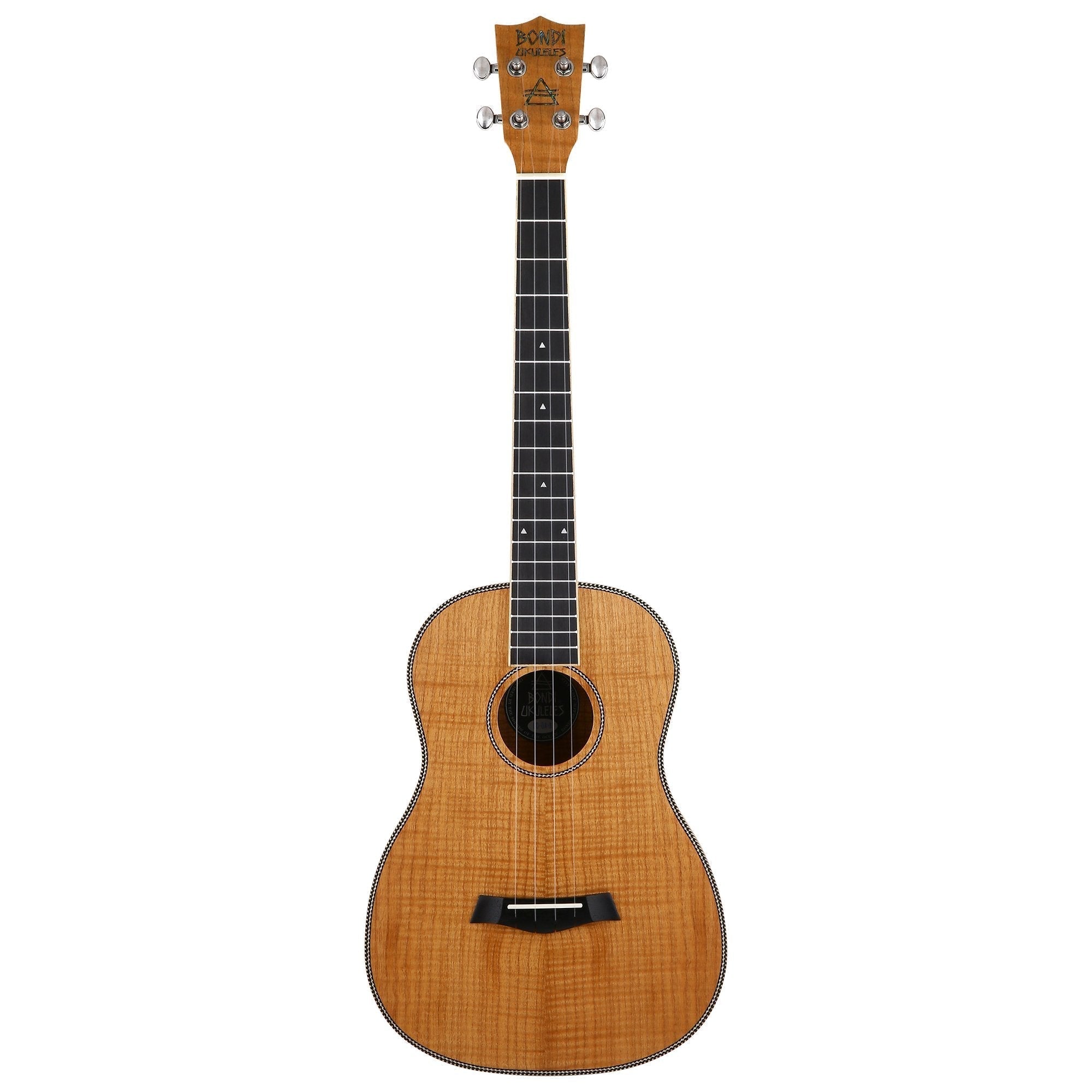Tenor vs Baritone Ukulele: What Are the Pros and Cons?

In recent years, more and more people have taken up the ukulele as a musical instrument to learn how to play. But with so many different styles and sizes of ukuleles on the market, it can be difficult to pick the one that best suits your needs.
Now, two of the most common types of ukuleles are tenor and baritone ukuleles. Whilst they may look similar at first glance, they have unique features and characteristics that set them apart from each other.
Are you ready to pick a side in the ultimate ukulele showdown? It's tenor versus baritone, and the stakes are high. Which one will come out on top and earn the title of your ultimate jamming partner?
In this blog post, we'll explore the pros and cons of each instrument, to help you decide which one is the right choice for you.
Tenor Ukulele
The tenor ukulele is one of the most popular types of ukuleles available on the market. It is slightly larger than the concert and soprano ukuleles, with a longer neck and a wider fretboard. The tenor ukulele is often preferred by professional musicians and experienced players, as it offers a deeper and richer tone that is ideal for a wide range of music genres, including jazz, blues, and folk.
Pros of the Tenor Ukulele
Rich and full sound: The tenor ukulele has a larger body and a longer neck than the smaller ukuleles, which allows for a richer and fuller sound. This makes it an ideal choice for players who want to explore a wider range of musical styles and genres.
Easier to play: The tenor ukulele has a wider fretboard, which makes it easier for players with larger hands to play. This is particularly important for musicians who want to practise more complex chords and fingerpicking patterns.
Versatile: The tenor ukulele is a versatile instrument that can be used in a variety of music genres. Its deep and rich sound is perfect for jazz and blues music, while its clarity and projection make it an excellent choice for folk and pop music.
Cons of the Tenor Ukulele
Larger size: If you're a musical nomad who likes to strum on-the-go, the tenor ukulele might not be your jam. It's bigger than its smaller counterparts, making it a bit of a challenge to pack in your suitcase or store in your closet. So unless you're a seasoned player or have a spacious pad, you might want to opt for a more petite uke(like soprano or concert) to start with.
More expensive: The tenor ukulele is typically a bit more expensive than the smaller ukuleles, which can make it more challenging for some players to afford. However, there are affordable options available on the market for those who are on a budget. So don't let your wallet hold you back from strumming in style.
Baritone Ukulele
The baritone ukulele is the largest type of ukulele available on the market. It is often compared to a small guitar, with a deeper and richer sound than the other ukulele sizes. The baritone ukulele is an excellent choice for players who want to explore a wider range of music styles, including jazz, blues, and country.
Pros of the Baritone Ukulele
Deep and rich sound: The baritone ukulele has a larger body and a longer scale length than the other ukulele sizes, which allows for a deeper and richer sound. This makes it an ideal choice for players who want to explore more complex musical styles and genres.
Easy to play: Players with larger hands may find it easier to play the baritone ukulele because it has a wider fretboard than the other smaller ukulele sizes. When playing a complex chord progression, your fingers will have more space to move around each fret. This is crucial for musicians who want to play intricate fingerpicking and chord patterns.
Similar to the guitar: The baritone ukulele is often compared to a small guitar, due to its larger size and deeper sound. This makes it an excellent choice for guitar players who want to try something new, as the baritone ukulele uses the same tuning as the highest four strings of a standard guitar (DGBE).
Cons of the Baritone Ukulele
Limited availability: The baritone ukulele is not as widely available as the other ukulele sizes, which can make it more challenging to find in music stores. However, there are many online retailers that offer a wide selection of baritone ukuleles.
Not as traditional: The baritone ukulele is not as traditional as the other ukulele sizes, which may not appeal to some players who prefer a more authentic ukulele sound. However, this can also be seen as an advantage for those who want a unique and distinct sound.
Tenor vs. Baritone Ukulele: Which One Is Right for You?
Choosing between a tenor and baritone ukulele depends on your personal preferences, playing style, and music genre. Here are some key factors to consider when making your decision:
Sound: If you prefer a deeper and richer sound, then the baritone ukulele may be the right choice for you. However, if you want a versatile instrument that can produce a wide range of sounds, then the tenor ukulele may be the better option.
Playing style: If you have larger hands and prefer playing complex chords and fingerpicking patterns, then the tenor or baritone ukulele may be more suitable for you. However, if you prefer a simpler playing style, then the smaller ukulele sizes may be a better fit.
Music genre: If you want to play jazz, blues, or country music, then the baritone ukulele may be the best choice for you. However, if you want to play a variety of music styles, including folk and pop, then the tenor ukulele may be a more versatile option.
Final Thoughts
Well, well, well, looks like we have a bit of a musical conundrum on our hands. The tenor and baritone ukulele both have their own quirks and perks, making them ideal for different tunes and techniques.
To pick the perfect uke for you, it's important to think about the sound you're going for, your playing style, and the kind of music you want to play. Trust us, finding the right instrument will be music to your ears!
So listen up…Whether you go for a tenor or baritone ukulele, the key is to have a blast and let the good times roll. With the perfect uke in your hands, some good old-fashioned practise, and a healthy dose of dedication, you'll be strumming like a pro in no time.
So, which one tickles your fancy? Drop a comment and let's keep the ukulele love flowing!
 Lifetime Warranty
Lifetime Warranty  60 Day Returns Policy
60 Day Returns Policy 1-2 Day Delivery
1-2 Day Delivery 

































Do you make tenor bass ukes for left-handers, or can I make it left handed, by changing the not and the bridge?
I think I’m leaning towards the tenor.
I think I’m leaning towards the tenor.
I’m learning ukulele with Lindy Sardelic at Sydney Community College, who referred me to you. I’m a big guy with fat fingers who finds the D chord, among others, even on a tenor, hard to form. If I am in a group lesson, can I use the same chords as the rest of the group?
Hi there. I put a low g on my tenor uke because I wanted a deeper sound
Then there’s the baritone which gives that sound I like. Only problem is the chords are all different on the baritone. A whole new learning 🤪
Leave a comment